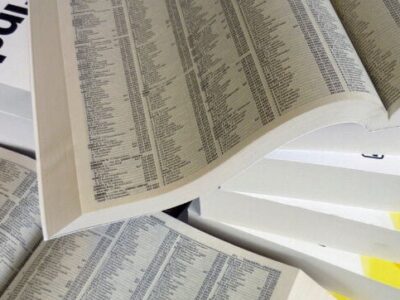Winnipeg writer Allan Levine has introduced a Jewish literary detective in his first novel, The Blood Libel (Great Plains Fiction).
The novel is set in Winnipeg’s North End in 1911, when the streets were teeming with impoverished immigrants. Levine’s protagonist, 28-year-old Sam Klein, works in a brothel and turns gumshoe after a rabbi is accused of a murder that Klein is certain he didn’t commit.
“He’s a tough character,” said Levine, who was in Toronto recently to give a reading at the Sleuth of Baker Street bookstore. “He’s very knowledgeable about the streets, and he’s forced to use his streetwise talents to investigate the murder.”
The premise of The Blood Libel is that a Jew in Canada can be credibly accused of a blood libel murder — the slaughter of a child in order to use the blood for baking matzoh and other ritualistic purposes. Usually a product of anti-semitism and mass hysteria, blood libel trials have recurred sporadically in Europe from medieval times until this century.
Levine, who received a PhD in history from the University of Toronto, adeptly transplants this largely European social phenomenon onto his home turf. He again demonstrates a keen historian’s eye in bringing the booming frontier town to life, peopled with a colorful mix of crooks, grain merchants, police and prostitutes.
“The hardest part for me as a writer was creating credible characters and dialogue,” he said. “I guess readers will have to judge that for themselves.”
Levine, who is 41 years old, is a teacher at a Winnipeg private school. He is the author of several non-fiction works on historical subjects, including a study of Winnipeg’s grain trade. “I think in most non-fiction writers, there’s a novel waiting to jump out,” he said.
While he has left the door open for a sequel novel featuring Sam Klein, he has already completed another non-fiction book. Fugitives of the Forest focuses on the roughly 35,000 to 40,000 Jewish partisans and other Jews who survived the Holocaust by hiding in the forests of Eastern Europe. The book is due out from Stoddart in the fall of 1998. ♦
© 1998






